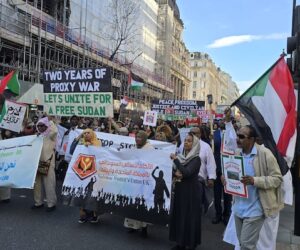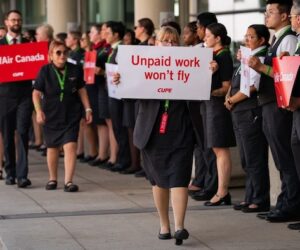Prosecutors in Bangladesh have called for the death penalty for former Prime Minister Sheikh Hasina, accusing her of committing crimes against humanity during a deadly crackdown on student-led protests that toppled her government last year.
Hasina, who ruled Bangladesh for 15 years before being ousted in August 2024, is accused of ordering security forces to use lethal force against demonstrators. According to a leaked audio clip cited by prosecutors, Hasina told security commanders to “use lethal weapons” against protesters a charge she strongly denies.
Chief prosecutor Tajul Islam told the Dhaka court on Thursday that Hasina deserved “1,400 death sentences” one for each victim killed during the unrest but that “since that is not humanly possible, we demand at least one.”
“[Hasina’s] goal was to cling to power permanently, for herself and her family,” Islam said. “She has turned into a hardened criminal and shows no remorse for the brutality she has committed.”
The protests began in July 2024, initially over controversial civil service job quotas favouring descendants of veterans from Bangladesh’s 1971 war of independence. But the movement quickly evolved into a nationwide revolt demanding Hasina’s resignation.
Over several weeks, more than 1,400 people were killed, marking Bangladesh’s bloodiest unrest since the independence war.
One of the deadliest incidents occurred on 5 August 2024, when Hasina fled her residence in Dhaka by helicopter as crowds stormed the compound. According to investigation, police opened fire on protesters in a busy Dhaka neighbourhood, killing at least 52 people that day alone.
The former prime minister’s defence lawyer, appointed by the state after she fled to India, argued that police acted in self-defence after being attacked by violent demonstrators.
Hasina is being tried in absentia alongside former Interior Minister Asaduzzaman Khan Kamal and ex-police chief Chowdhury Abdullah Al-Mamun. Prosecutors have also demanded the death penalty for Kamal, who remains in hiding.
Chowdhury, who pleaded guilty in July, admitted to carrying out government orders during the crackdown but has not yet been sentenced.
Hasina, 77, has already been sentenced to six months in prison for contempt of court and faces additional corruption charges linked to her time in office.
The former leader is believed to be living in India, where she fled after being forced from power. New Delhi has not confirmed her presence but is reportedly under diplomatic pressure to clarify her status.
Hasina’s once-dominant Awami League party has been banned from all political activities, including contesting elections. The Bangladesh Nationalist Party (BNP), led by her long-time rival Khaleda Zia, is now the frontrunner ahead of February 2026 elections.
Observers say the outcome of Hasina’s trial could reshape Bangladesh’s political future. Rights groups have urged transparency and due process, warning that a politically motivated verdict could deepen divisions in the South Asian nation.
International organisations, including Human Rights Watch and Amnesty International, have condemned both the 2024 violence and the current legal proceedings, urging an independent investigation into the deaths of protesters and police.
The charges mark a dramatic fall from grace for Hasina, who was once celebrated internationally for transforming Bangladesh into one of Asia’s fastest-growing economies. Her tenure, however, became increasingly authoritarian in later years, with critics accusing her of suppressing dissent, rigging elections, and jailing opponents.
If convicted, Hasina could become the first former leader in Bangladesh’s history to be sentenced to death while in exile a decision likely to ignite fresh political tensions both inside Bangladesh and across the region.
Erizia Rubyjeana
Follow us on:








